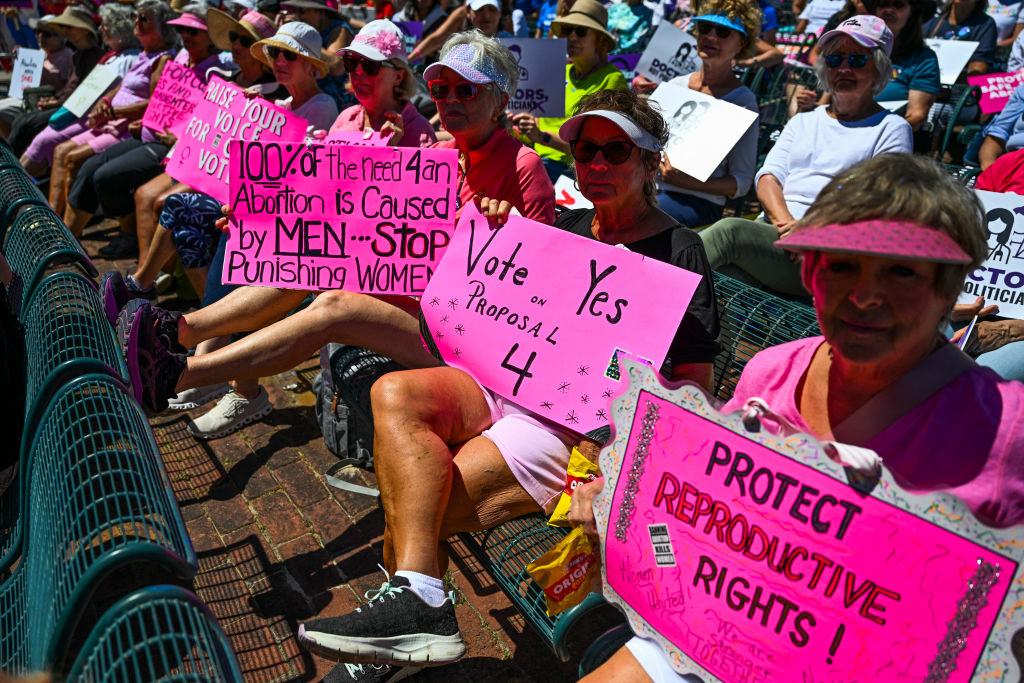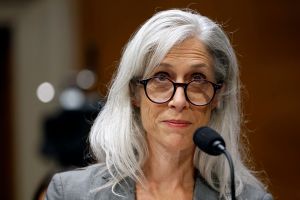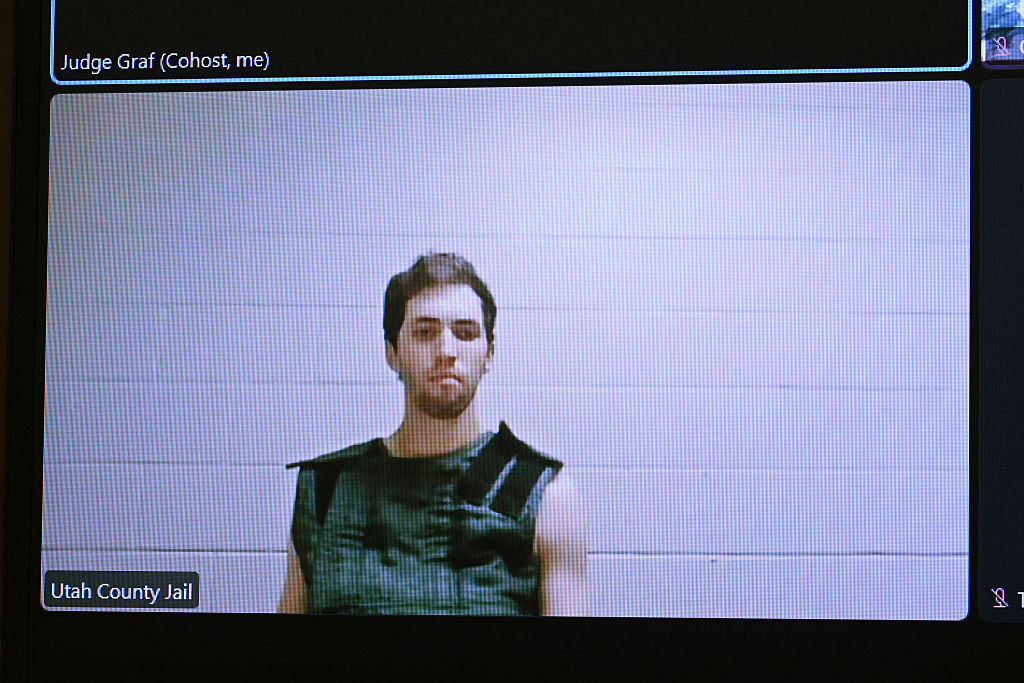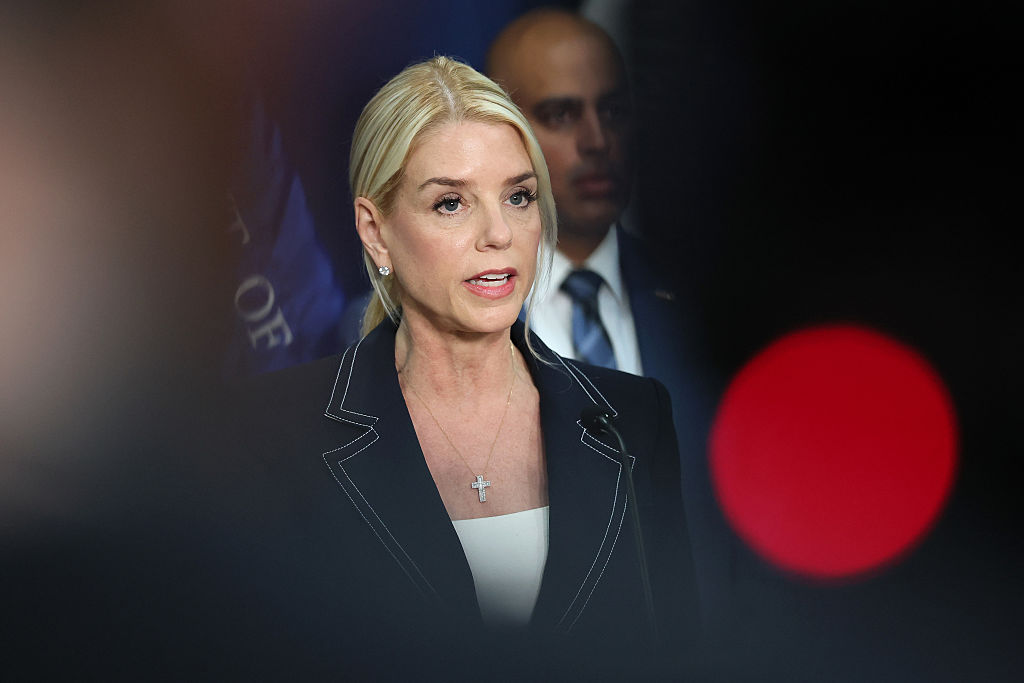Lorien Hershberger checked every box: she grew up in poverty, was pregnant just out of high school and her boyfriend wasn’t interested in being a father. She had an abortion at twenty. When Vice President Kamala Harris talks about abortion, Lorien is not just the exemplar of reproductive freedom — she is the audience. Perhaps that is why she has received so many robocalls and text messages from Amendment 4 campaigners looking to enshrine abortion up until the moment of birth as a right in the Florida state constitution. They are mistaken.
“This is a business,” Hershberger, now a pro-life activist, tells The Spectator. “That’s the most disgusting part of it to me. They do come [in] under the banner of, ‘We’re about women and we’re protecting women.’ But honestly, if you want to kill children in the womb, if you want to take our children from us, that is hitting us in the very core of what it means to be a woman.”
Activists may sell abortion as empowering, but Hershberger recalls feeling trapped. Her boyfriend knew her mother was an addict, that she had been abused. Amendment 4 serves boys like him just fine, but it is the Lorien Hershbergers of the world who have to live with it.
“I felt in that moment I had to comply with his demands,” she says. “I didn’t have the strength or the courage to fight for my baby in that moment. I had no home to run back to.”
Dr. Grazie Pozo Christie, a Miami radiologist, insists that Amendment 4 is presenting Florida’s women with a false choice.
“This is not a dichotomy between no abortion and all abortion. That’s a false choice,” she says. “It’s actually a choice between ‘Wild West’ unregulated backroom abortions, including late-term abortions, and making Florida an abortion destination, versus a state that regulates abortions properly for the safety of women and girls, including parental consent.”
Under current Florida law most abortions are banned after six weeks gestation, when a baby’s heartbeat can be detected; exceptions are made “at any stage of pregnancy to save the life and health of the mother,” and in cases before fifteen weeks’ gestation in which “the pregnancy results from rape, incest, or human trafficking, or has a fatal fetal abnormality.” Existing Florida statutes allow abortion “at any point in pregnancy to save the pregnant woman’s life or avert a serious risk of substantial and irreversible physical impairment of a major bodily function.” A guidance document released in September by the state’s Agency for Health Care Administration clarifies that healthcare facilities and providers must administer lifesaving medical care to women who face difficult circumstances such as an ectopic pregnancy, in which an embryo lodges outside the uterus, usually in a fallopian tube.
In other words, all the scenarios pro-abortion advocates use to campaign for Amendment 4 are provided for in Florida law. Amendment 4 is not about lifesaving care or rape or incest — those tragedies are mere talking points intended to help overturn requirements for parental consent, to grant doctors immunity from malpractice suits and to allow abortion far after viability: there is a reason its proponents are conflating miscarriages with abortion in the closing weeks of the campaign. Dr. Christie is taken aback by the politicians and activists who have accused pro-life legislation of causing the deaths of women from medical neglect at the hands of abortionists. “You can continue to practice medicine as you always have, nothing has changed,” Dr. Christie says. “Treatments for ectopic pregnancies are not abortions, so women will not be in danger… An abortion is the intentional killing of a fetal life or an embryonic life. That’s completely different from any kind of treatment of a woman’s health problem in pregnancy which could result in the death of her fetus or of her embryo or of her baby.”
Florida’s existing abortion law speaks clearly when it comes to exceptions. Amendment 4 may speak deliberately, but only an audience in the know sees clearly the significance of its vagueness. “No law shall prohibit, penalize, delay, or restrict abortion before viability or when necessary to protect the patient’s health as determined by the patient’s healthcare provider,” the ballot summary says. Notice the absence of the word doctor or physician? The clinics that stand to benefit from the proposal certainly do. Florida laws regulate “healthcare providers,” including nurses, physical therapists, dental hygienists and even abortionists.
“As a physician, I know that these are dangerous procedures, obviously for the baby that always dies, but also for the mom, and it’s crazy to take out the physician requirement,” Dr. Christie says.
Hershberger calls it “highly unethical” to have abortionists — who may fall under the term “healthcare professional” — decide whether the procedure is in the interests of a woman’s health.
“They have a financial interest in the taking of that life,” she says. “They should not be the ones saying whether or not the life of the mother is in danger.”
Current law allows abortion after six weeks in cases that threaten a woman’s health, but only if the circumstance poses a “serious risk of substantial and irreversible physical impairment of a major bodily function.” A woman could not claim that her psychological health would be harmed by carrying a baby to term and obtain a late-term abortion. Hershberger, who advocates for life with Operation Outcry, argues that Amendment 4 represents a last-ditch effort for abortion facilities to protect their bottom lines.
“They’re going through a survival act right now,” she says. “I would imagine, with these healthy limits that are being put in place, that these brick-and-mortar abortion sites throughout the states, they’re feeling the pinch of that, because they’re not having as many people come through the doors.”
When the Supreme Court overturned the 1973 abortion precedent Roe v. Wade in its Dobbs v. Jackson decision in 2022, states regained the legal authority to set their own laws on abortion. In the wake of Dobbs, many state legislatures began passing new pro-life laws and enforcing previously-passed laws to protect babies at various points in pregnancy. Heavily Democratic states such as Illinois and New York overturned previous regulations in order to guarantee abortion up until the point of birth. Over the past several years Planned Parenthood and its allies have discovered it is easier to win over the average voter than it is to flip a state legislature. They turned to ballot initiatives after watching voters in reliably red states, such as Ohio and Montana, reject pro-life protections. Pro-abortion ballot initiatives have also succeeded in Vermont, Michigan and California. Nine states, including Florida, will consider ballot initiatives to write abortion rights into their constitutions in November.
Hershberger described this strategy as a “slap in the face of legislators,” who worked for years to craft laws regulating abortion. “You are disrespecting the legislative process if you allow a business to come in and purchase the right to kill our children.”
What does Amendment 4 say? Its text is remarkably short.
“Except as provided in Article X, Section 22, no law shall prohibit, penalize, delay, or restrict abortion before viability or when necessary to protect the patient’s health, as determined by the patient’s healthcare provider,” the amendment states. The relevant existing section of Article X, Section 22 of the Florida Constitution addresses a minor’s privacy rights and requires that an abortionist notify a minor’s parent or guardian before terminating a pregnancy.
A separate section of Florida law requires not just parental notification but parental consent before terminating a pregnancy. Amendment 4 does not explicitly mention this section, but critics warn that legal challenges to the parental consent requirement would likely succeed if Amendment 4 passes.
Floridians Protecting Freedom, the group behind Amendment 4, did not answer questions about the initiative. The group, which has spent more than $6.6 million to support the initiative, directed The Spectator to a recent press call with Natasha Sutherland, a senior advisor to the Yes on 4 Campaign. Sutherland condemned what she called “Florida’s extreme abortion ban.”
“Nobody should be telling us what to do, certainly not politicians, and decisions about healthcare, including when it comes to abortion care, belong with us, the patients, with our loved ones, and our doctors, never with politicians,” she said.
The well-funded machine behind unlimited abortion has little to worry about from an organized opposition. Florida Voters Against Extremism, which has only spent around $114,000 against the ballot measure, receives much of its funding from Roman Catholic dioceses in the Sunshine State. The Florida Conference of Catholic Bishops argued that opposition to Amendment 4 falls under the Christian duty of protecting the “least of these.”
“Direct attacks on innocent lives are never morally acceptable, at any stage or in any condition,” Michele M. Taylor, associate director for communications at the Florida Conference of Catholic Bishops, tells The Spectator. “Abortion attacks the weakest and most vulnerable of the ‘least among us’ and destroyed over 84,000 defenseless and voiceless lives in Florida in 2023 alone.
“Amendment 4 would eliminate all limits and regulations on abortion and legalize late-term abortion far beyond when science says the baby is capable of feeling pain… the Florida Conference of Catholic Bishops is working diligently to oppose this extreme and deceptive amendment and urges all Floridians to vote ‘No.’”
One may take for granted the reliable opposition of the Catholic Church, but the same cannot be said for Republicans. Most elected GOP officials have toed the traditional party line. Senator Rick Scott, who is running for reelection in November, condemned the amendment in a statement to The Spectator.
“Senator Scott has been clear that he will be voting ‘no’ on Amendment 4, but every Floridian will get to make their voices heard this November and make up their own mind,” Scott campaign spokesman Will Hampson said. “Democrats have become too extreme on abortion and continue to push for abortion on demand well past any reasonable limits, along with tax- payer funding of abortions. That’s not where Florida voters are.”
The top of the GOP ticket, however, has been less clear, particularly as reporters have used Amendment 4 to attack former president Donald Trump. As a Florida resident, the Republican nominee will have the chance to vote on ballot initiative unless he is stripped of his voting rights by a New York judge. Trump, having occasionally laid the blame for GOP election disappointments on the pro-life issue, appeared to waffle on it during the primaries. While he has insisted he will not sign a federal abortion ban as president, he has condemned Amendment 4 as “radical.” When pressed by reporters in August, he criticized Florida’s six-week timeline as “too early.” After receiving pushback from pro-life groups, he came out more forcefully.
“You can do an abortion in the ninth month. And, you know, some of the states, like Minnesota and other states have it where you can actually execute the baby after birth and all of that stuff is unacceptable. So I’ll be voting ‘no’ for that reason,” Trump told Fox News. Trump’s frequent claims that doctors can “execute the baby” trace back to a radio interview with then-Virginia Governor Ralph Northam, a Democrat, who described how medical professionals would discuss with the mother whether to resuscitate a baby born alive in an attempted abortion — or to leave the baby to die. Giving the newborn “palliative care” and leaving the baby to die, which Northam presented as an option, does not fit the definition of execution, but it does have the same effect. Trump’s statement, while untrue, gets at the heart of a common pro-life complaint about pro-abortion statutes and ballot initiatives, like Amendment 4.
The Democratic ticket, now headed by Vice President Kamala Harris, has proven clearer on the issue, though not without some dissembling. Harris has repeatedly pledged to sign a law “codifying Roe v. Wade,” and she has called for abolishing the Senate filibuster to get the law through Congress. Yet the bill she cosponsored in the US Senate — the Women’s Health Protection Act of 2017 — went beyond Roe, as did the similar bill she supported in 2022.
The Sunshine State was once a bellwether on the direction of the country when it came to presidential politics, but it is now reliably red. The fate of Amendment 4 will have consequences beyond November. It may determine whether the Republican Party of the future responds to the issue of abortion with the resolve of Rick Scott or the waffling of former President Trump.
Hershberger, a former Democrat, says there is no doubt about what the path forward must be: “Don’t take the guardrails off of protecting women at the expense of what you think is freedom or women’s rights.”
This article was originally published in The Spectator’s November 2024 World edition.


























Leave a Reply